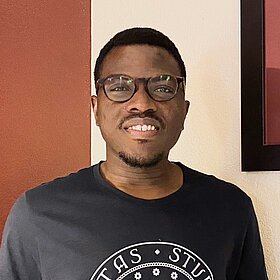Taiwo Isaac Olantunji

Taiwo Isaac Olatunji is a doctoral candidate in Pedagogical, Educational, and Training Sciences at the University of Padua (Padova), Italy. His doctoral research project explores how cross-cultural transition results in transformative learning among Nigerian immigrants in Italy and the USA. Taiwo was recently a Visiting Research Scholar in Adult, Professional, and Community Education at Texas State University, San Marcos, USA. He is an alumnus of Obafemi Awolowo University, Ile-Ife, Nigeria. and an Erasmus+ Alumnus of Julius-Maximillians University Wuerzburg, Germany.
CG 3: Adult education for active democratic
Co-Moderators: Prof. Borut Mikulec
Efforts towards active and democratic citizenship are one of the “classic” themes in adult education theory and practice. Many adult educators, especially those who associated adult education with social movements, recognised adult education as major force for social change that can make a significant contribution to maintaining democracy and lead to emancipation by adults learning the principles of democratic reasoning, active citizenship, civic competence and communicative action. In this sense democratic society is a learning society.
Furthermore, governments around the globe as well as international intergovernmental organisations (IIOs) (e.g. EU, UNESCO, OECD) in their policies strive for “active”, “democratic”, “European” and/or “global” citizenship with which they promote values of democracy, human rights and the rule of law and fight against extremism, violence, racism, discrimination and xenophobia.
However, many authors and researchers find it difficult to define and conceptualise citizenship education – some seeing it as “citizenships as status”, “citizenships as activity/practice” or “citizenship as identity”, others distinguish between citizenship practices that are either socializing or transformative etc. – because citizenship is a dynamic, contextual, contested and multidimensional concept.
Therefore, with different practices, policies and conceptualisations of active and democratic citizenship related to adult education existing around the globe, this comparative group will elaborate their commonalities and differences in a comparative perspective.


